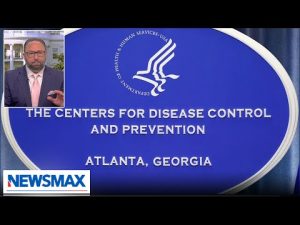In the state of Minnesota, a troubling situation has arisen that has many citizens uncomfortable and concerned. Recently, discussions have surrounded the safety of children, particularly in Catholic schools, while also highlighting issues related to transgender policies and a series of tragic events that have put this topic front and center in public discourse. The situation is anything but straightforward, and it reflects broader societal struggles regarding safety, mental health, and the effects of radical agendas.
It started with the growing call for enhanced security in schools. Many have raised their voices in dismay over the apparent lack of concern shown by some politicians regarding the safety of Catholic school students. It seems that while pushing a progressive agenda, including support for various societal changes, some politicians have turned a blind eye to the very real threats facing students. Advocating for armed guards in schools may seem like a common-sense measure, especially in a time where tragedies continue to occur, yet the response from certain leaders has been less than satisfactory.
Compounding this issue is the increasingly vocal conversation around transgender rights and mental health. Statistics revealing that a significant percentage of transgender individuals have contemplated suicide raise alarm bells. Many argue that rather than providing solutions, politicians are focusing on policies that could lead to even more confusion and distress among youth who may be struggling with their identity. The belief is that a society that offers easy fixes without proper support systems may be creating more problems than it solves.
Illustrating the intensity of the situation, recent rallies and public appearances have sparked debate. Notably, a politician displayed an endorsement of transgenderism while exuding a vibrant enthusiasm that some found unsettling, especially given the backdrop of recent violent events. Observers noted the stark contrast between the joyful portrayal of such a serious topic and the gravity of the issues surrounding mental health and youth identity confusion. Many are left wondering whether the political motivations driving these actions truly consider the well-being of the individuals involved.
In the wake of these discussions, another topic that has surfaced is the response to prayer in times of crisis. Recent tragedies, particularly those affecting children, have sparked outrage over dismissals of prayer as a means of solace. While a staggering majority of Americans hold faith in a higher power, some leaders have resorted to trivializing the act of prayer when it is most urgently needed. The growing divide between those who find comfort in prayer and those who dismiss it reflects a deeper rift in American society, one that often ponders what the right response should be following devastating loss.
As many ponder the complexities of these intertwined issues, the narrative continues to evolve. The concern for children’s safety in schools, the mental health challenges facing many, and the role of prayer in healing are significant topics that require thoughtful consideration. As Minnesota navigates these conversations, citizens are left to reflect on the kind of future they hope to create—one that offers support and understanding rather than polarization and division. It’s a tall order, but there’s hope that through dialogue, empathy, and community, solutions can be found that prioritize the well-being of all children.







